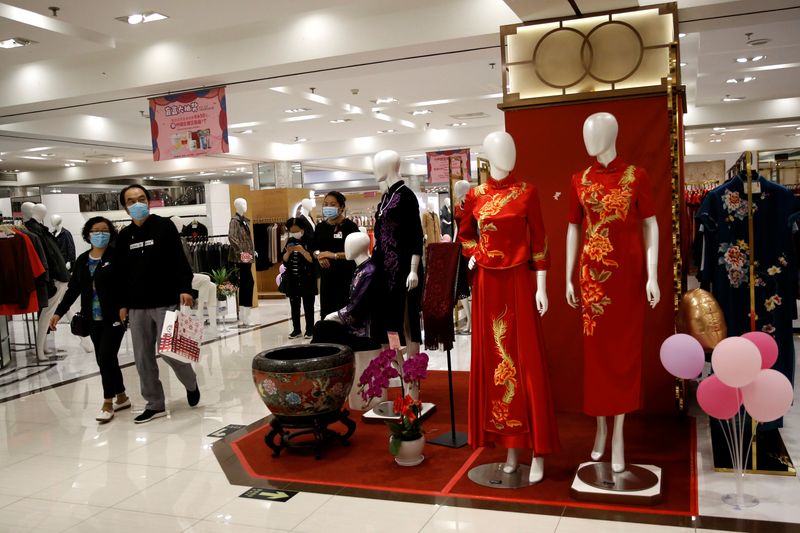By Zhang Mengying
Investing.com – China’s services activity contracted for the third month in a row in May, suggesting a slow recovery despite the world’s second-largest economy easing some COVID-19 curbs.
China's Caixin services purchasing managers’ index (PMI), released earlier in the day, rose to 41.4 in May from 36.2 in April, edging up slightly as the country is easing some of the strict COVID-19 measures in cities such as Shanghai. However, the reading stayed below the 50-point mark that separates growth from contraction.
Analysts say slow activities in the services sector are likely to persist under the government’s zero-COVID policy, with sectors such as hotels and restaurants hit the hardest.
The Caixin survey showed new business, including new export orders, fell for the fourth straight month in May because of restrictions that kept customers at home and disrupted operations.
Services firms also reduce payrolls.
Caixin’s sub-index for employment stands at 48.5, the lowest since February 2021 and down from 49.3 the previous month.
Official data showed China's nationwide survey-based jobless rate had climbed to 6.1% in April, the highest since February 2020.
“The employment measure has remained in the contractionary territory since the beginning of this year. The impact of the epidemic has hit the labor market. Enterprises weren't much motivated to increase hiring. As a result, outstanding business (backlogs) in the services sector grew further,” said Caixin Insight Group Senior Economist Wang Zhe in a statement accompanying the data release.
The Chinese government recently announced 33 measures covering fiscal, financial, investment, and industrial policies to help stabilize the economy.
“It's necessary for policymakers to pay closer attention to employment and logistics. Removing obstacles in supply and industrial chains and promoting the resumption of work and production will help to stabilize market entities and protect the labor market,” said Wang from Caixin Insight Group, adding that the authority should also hand out subsidies for people whose income has been affected by COVID.
